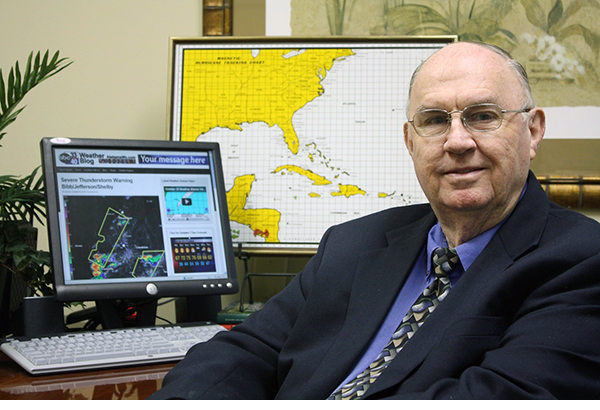What Must One Study To Obtain A Degree in Meteorology?
What Does a Degree in Meteorology or Atmospheric Science Require?
Maybe you’ve found yourself fascinated with the weather, endlessly gazing at the atmospheric ceiling, supine in the grass, eyes trained on the sky. Be it a newborn passion, or a lifelong fervor, he or she who decides to further this budding interest and develop it into a lifelong career may wonder what is required to surmount this goal and achieve it.
As a starting point, there are many requirements to achieve an undergraduate degree in atmospheric sciences or meteorology, much of which involve the physical sciences. Seeing as the atmosphere acts as a fluid, moving and flowing, a strong backbone in physics and physical concepts is crucial to adopt and maintain a deep understanding of atmospheric behavior and movement, that then permits one to understand more advanced meteorological concepts. Many universities and colleges require undergraduates of atmospheric science to take and pass at minimum one complete series of Physics, or at least part of one.
To supplement the understanding of physical and atmospheric concepts, a strong foundation in advanced mathematics such as calculus and linear algebra is mandatory. One must be able to solve and work through advanced mathematical equations and problems that will also more than likely present themselves within Physics courses. Physics has strong ties and correlations to concepts found within advanced mathematics, therefore placing the importance of needing to be able to work through higher level math problems.
As a science that relies quite heavily on satellite and radar data, in addition to computer models and projections of atmospheric behavior, computer proficiency is another skill required by most meteorology or atmospheric science degrees. Many universities require an actual computer coding class be undertaken, though the extent to which knowledge of coding is preferred may vary depending on the program.
Finally, a good grasp on chemistry concepts is also required of many undergraduate degree programs. The atmosphere is composed of different elemental gases and chemical compounds, so an understanding of how they may interact with one another and their formation or destruction under different environmental conditions such as heat and humidity is crucial. Great comprehension of chemistry topics is often beneficial especially for those that find themselves more interested in air pollution, a division of atmospheric sciences.
Like most STEM degrees, a degree in meteorology or atmospheric science can be difficult due to the necessity of understanding of higher mathematical and physics concepts. However, it is simultaneously one of the most rewarding. One is not limited to giving the weather report on the five o’clock news, instead, one may find themselves specializing in atmospheric chemistry to monitor air pollution levels, climatology to monitor atmospheric changes and the overall climate of the earth, researching cyclogenesis and how tornadoes form, making weather predictions based off of computer forecasts and models, or even advising on legal cases for careers such as forensic meteorology! There is a wide swath of of opportunity for those intent on pursuing atmospheric science as a degree. Furthermore, one may branch into many different sectors with such a degree, be it broadcast meteorology, military, private, or public such as the National Weather Service.
To find out more about weather education and related topics, click here: https://www.globalweatherclimatecenter.com/weather-education
SOURCES:
https://www.wmo.int/pages/prog/dra/etrp/become_meteorologist.php
© 2018 Weather Forecaster Alexis Clouser
AlabamaWX is pleased to partner with the Global Weather and Climate Center team for outstanding posts about our atmosphere. Visit them at https://www.globalweatherclimatecenter.com for more great information!
Category: Partner News Stories
















